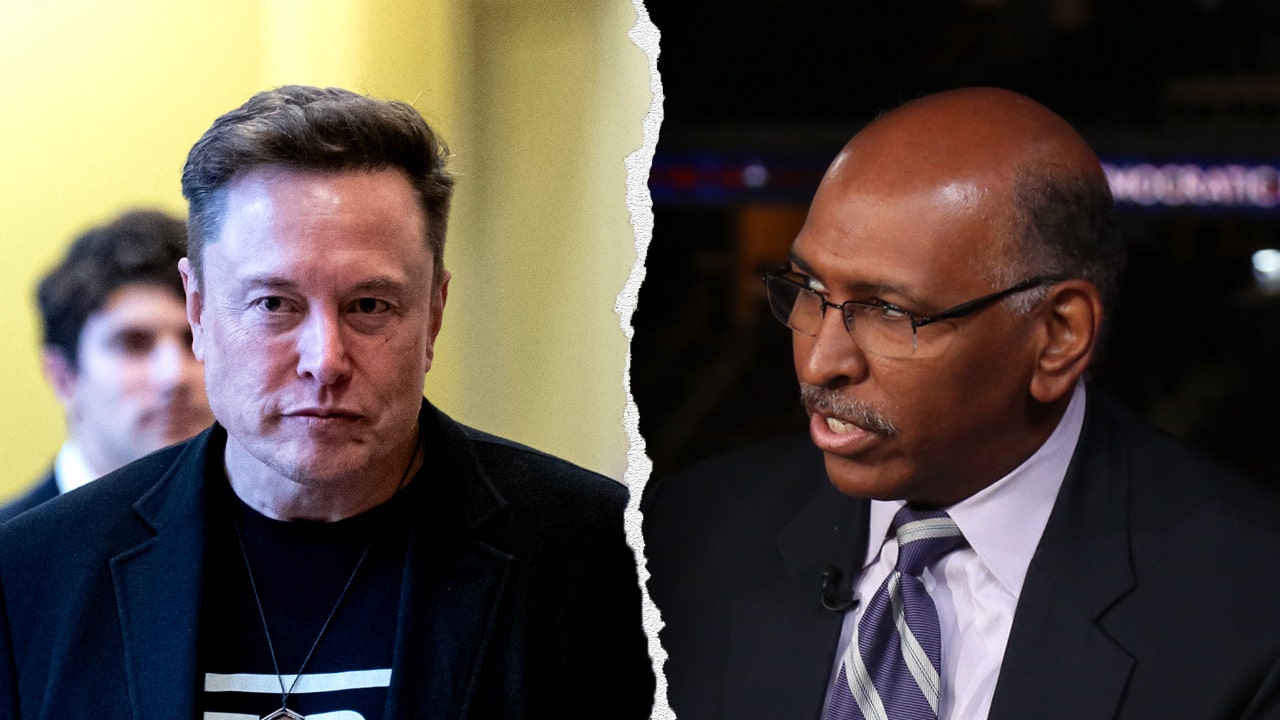MSNBC Hosts Take Aim at Elon Musk Following SpaceX Setback: A Closer Look
In a recent segment that has sparked discussions across various platforms, MSNBC hosts took a critical stance towards Elon Musk, particularly following a notable setback with SpaceX. The incident, which involved a malfunction during a rocket launch, prompted a humorous yet pointed critique from the hosts, who quipped that Musk should “stick to your day job.” This comment not only highlights their skepticism regarding Musk’s multifaceted ventures but also raises broader questions about the impact of such high-profile entrepreneurs on technology and space exploration.
The SpaceX Setback: What Happened?
The SpaceX setback in question occurred during a scheduled launch intended to advance the company’s ambitious plans for space travel and exploration. Unfortunately, a malfunction led to the rocket’s failure to achieve its objectives, which was a significant blow not just to the company but to the public’s perception of Musk’s ability to juggle multiple high-stakes ventures simultaneously.
This incident is not isolated; SpaceX has faced challenges in the past, including issues with launches and setbacks in their Starship program. However, the frequency of these incidents begs the question: can Musk effectively manage the various enterprises he is involved in, from Tesla to Neuralink, while maintaining the level of excellence necessary for groundbreaking projects like SpaceX?
MSNBC’s Commentary: Humor Meets Critique
MSNBC hosts utilized humor to address their skepticism about Musk’s ventures. Their remarks, while light-hearted, reflect a deeper concern regarding the implications of Musk’s divided attention. They suggested that perhaps Musk’s focus should be on one area instead of spreading himself thin across various industries, which could lead to oversight and mishaps like the recent SpaceX failure.
The hosts’ comments resonate with a growing sentiment among critics who argue that Musk’s approach to managing several companies simultaneously may be detrimental to their success. This raises an important point: can one person truly excel across diverse fields without compromising quality?
Elon Musk: A Jack of All Trades? Or a Master of None?
Elon Musk is often lauded as a visionary; his ambitious goals range from colonizing Mars to revolutionizing transportation with electric vehicles and high-speed trains. However, the question remains whether he can maintain a laser focus on these monumental tasks while juggling multiple responsibilities. Critics argue that his tendency to spread himself too thin could result in oversights that jeopardize the success of his ventures.
- SpaceX: Aiming for interplanetary travel, yet facing launch setbacks.
- Tesla: Leading the charge in electric vehicles while navigating production challenges.
- Neuralink: Exploring the frontiers of brain-machine interfaces but facing ethical concerns.
- The Boring Company: Innovating urban transportation, yet dealing with regulatory hurdles.
This multifaceted approach, while ambitious, can be a double-edged sword. Each of Musk’s companies requires immense attention to detail, and any distraction could lead to significant ramifications. The recent SpaceX setback serves as a reminder that even the most innovative minds can falter.
The Broader Implications of Musk’s Ventures
Elon Musk’s endeavors extend beyond mere commercial interests; they have profound implications for technology, society, and even environmental sustainability. However, with great ambition comes great responsibility. As he pushes the boundaries of innovation, the stakes are incredibly high, not just for Musk himself but for the broader community that relies on these technologies.
For instance, SpaceX’s goal of making space travel more accessible could revolutionize industries such as telecommunications and even tourism. However, if operational setbacks persist, it could hinder progress and public trust in private space exploration.
Public Perception: A Balancing Act
Public perception plays a crucial role in the success of any entrepreneur, particularly someone as high-profile as Musk. While he has a dedicated following that admires his vision and innovation, there is also a growing contingent of skeptics who question his capacity to effectively lead multiple companies. The recent comments from MSNBC reflect this skepticism, sparking a dialogue on social media and beyond.
Supporters argue that Musk’s unique ability to think outside the box and tackle complex challenges is what drives innovation. However, detractors caution that his approach could lead to burnout or oversights that harm his companies’ reputations and objectives.
Finding a Path Forward: What Lies Ahead for Musk?
As the dust settles from the recent SpaceX setback, one cannot help but wonder what lies ahead for Elon Musk and his ventures. Will he adjust his focus and prioritize certain projects over others? Or will he continue to embrace the chaos of managing multiple enterprises? Only time will tell.
However, one thing is clear: the intersection of ambition and responsibility is a delicate balance. Musk must navigate these waters carefully if he wishes to maintain the public’s trust and continue on his path of innovation.
Conclusion: A Call for Reflection
The recent on-air segment from MSNBC provides not just a critique of Elon Musk but also a broader commentary on the challenges faced by entrepreneurs in today’s fast-paced world. As they jokingly suggested he should “stick to your day job,” it’s essential to reflect on what that truly means in the context of innovation and leadership.
Elon Musk is undoubtedly a visionary, but the recent SpaceX setback serves as a reminder that even the most ambitious plans require careful execution and focus. As he continues to push the envelope in technology and exploration, the world watches closely, hoping for successes that inspire rather than setbacks that question his leadership.
See more CNET Live

